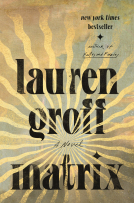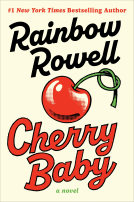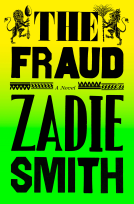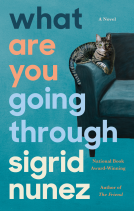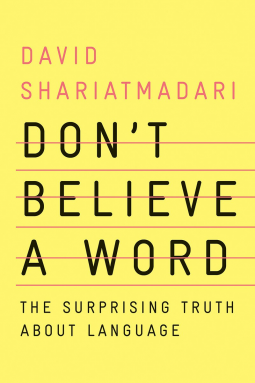
Don't Believe a Word
The Surprising Truth About Language
by David Shariatmadari
This title was previously available on NetGalley and is now archived.
Send NetGalley books directly to your Kindle or Kindle app
1
To read on a Kindle or Kindle app, please add kindle@netgalley.com as an approved email address to receive files in your Amazon account. Click here for step-by-step instructions.
2
Also find your Kindle email address within your Amazon account, and enter it here.
Pub Date Jan 07 2020 | Archive Date Dec 31 2019
Talking about this book? Use #DontBelieveAword #NetGalley. More hashtag tips!
Description
A linguist’s entertaining and highly informed guide to what languages are and how they function.
Think you know language? Think again. There are languages that change when your mother-in-law is present. The language you speak could make you more prone to accidents. Swear words are produced in a special part of your brain.
Over the past few decades, we have reached new frontiers of linguistic knowledge. Linguists can now explain how and why language changes, describe its structures, and map its activity in the brain. But despite these advances, much of what people believe about language is based on folklore, instinct, or hearsay. We imagine a word’s origin is it’s “true” meaning, that foreign languages are full of “untranslatable” words, or that grammatical mistakes undermine English.
In Don’t Believe A Word, linguist David Shariatmadari takes us on a mind-boggling journey through the science of language, urging us to abandon our prejudices in a bid to uncover the (far more interesting) truth about what we do with words. Exploding nine widely held myths about language while introducing us to some of the fundamental insights of modern linguistics, Shariatmadari is an energetic guide to the beauty and quirkiness of humanity’s greatest achievement.
About the Author: David Shariatmadari is a writer and editor at the Guardian. He studied linguistics at Cambridge University and the School of Oriental and African Studies in London, where he now lives.
Advance Praise
“Wonderful. David Shariatmadari wears his deep learning with such an admirable and alluring lightness of touch. You finish Don’t Believe a Word more alive than ever to the enduring mystery and miracle of that thing that makes us most human, the gift of language.” - Stephen Fry
“David Shariatmadari ... makes us look afresh at the language we speak and how it structures our intimacies, our thoughts, and our identities. Wry and immensely intelligent, Don't Believe a Word awakens us to complexities of communication that we too readily ignore, and it does so with both deep scholarship and a light touch.” - Andrew Solomon, author of Far From the Tree
“Come for the myth-busting, stay for the lighthearted introduction to linguistics. David Shariatmadari ably demonstrates that there are plenty of fascinating things to learn about language without indulging in sensationalist headlines.” - Gretchen McCulloch, author of Because Internet
“An illuminating and thought-provoking journey through language.” - Dean Burnett, best-selling author of The Idiot Brain and The Happy Brain
Available Editions
| EDITION | Hardcover |
| ISBN | 9781324004257 |
| PRICE | $27.95 (USD) |
